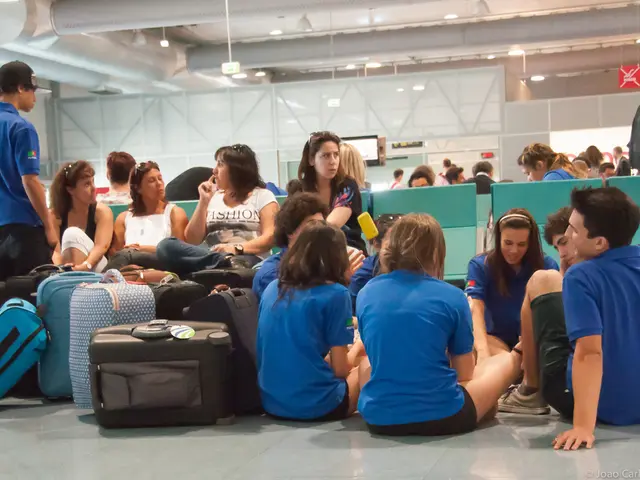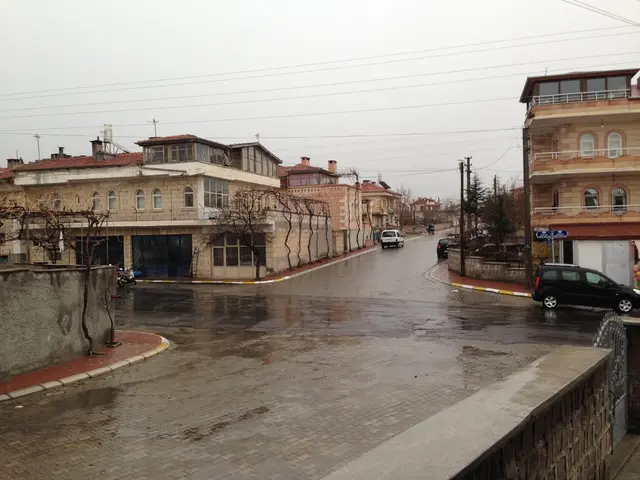Suburban low-income areas in Chicago face potential drastic reductions in public transit, possibly experiencing more severe impacts compared to the city itself.
In the south suburbs of Chicago, residents like Winfred Wilson rely on public transit to navigate their daily lives. As he awaited a bus connection in Harvey, Wilson noted the casual disregard towards fare evasion he frequently witnesses.
Across the nation, public transit agencies are grappling with a fiscal cliff precipitated by falling ridership and the looming expiration of pandemic-era federal relief funds. The Chicago area is especially vulnerable, facing potential service cuts that could already begin this weekend if Illinois legislators fail to bridge a $770 million budget gap in the transportation sector.
Commuters in the city would bear the brunt of these cuts, with the Chicago Transit Authority potentially shutting down a quarter of its elevated train lines and more than half of its bus routes. Yet, nowhere illustrates the scope of possible outcomes more clearly than Harvey, once a metropolis of the Southland before industrial decline and disinvestment took hold.
Harvey has the distinction of being the busiest station for the region's suburban bus system, PACE. It recently secured state and federal grants for a state-of-the-art transit facility, planned to coexist with the nearby Metra commuter rail stop. This upgrade could serve as an economic stimulus for Harvey, where high poverty rates and vacant businesses are common. However, the threat of ending or drastically cutting buses and trains serving the city could drive it into crisis.
Cheyane Felton, who works at a coffee stand in Harvey's City Hall, expressed concern about the possibility of being isolated without adequate public transportation. Without additional funding, PACE may be compelled to halt buses in Harvey and other locations on weekends and after 8 p.m. on weekdays.
Melinda Metzger, PACE's executive director, warned that such severe cuts could lead not only to a drop in ridership but also in the viability of the service itself, with many residents unable to reach their destinations late at night.
Transit agencies across the United States have faced varying levels of success in securing additional financial support from their respective state governments. Similar challenges are present in Philadelphia, where a $213 million transportation budget deficit threatens potential service cuts, fare increases, and curfews if more funding is not provided.
In New York, Governor Kathy Hochul signed a bailout package in 2023 for the city's subway and buses, while also introducing congestion pricing for drivers in Manhattan to bolster transit revenues. Regardless, the future of these initiatives remains uncertain, as they face challenges from the Trump administration.
Cities like Boston, San Francisco, and Washington, D.C., among others, are also confronting the pressing need to avert major transit cuts.
As the Illinois legislature prepares to adjourn at the end of their regular session this weekend, "no funding without reform" has become a recurring mantra. Although funding doesn't officially run out until the year's end, and a veto session could provide a second chance for an 11th-hour rescue, transportation officials warn that the time to outline specific cuts is fast approaching if a solution isn't reached soon.
"It's not a light switch we can just turn on or off," said Leanne Redden, executive director of the Regional Transportation Authority. "Even if we find funding at a future point, it's a slow process to kind of unwind the unwinding."
Despite the challenges, Harvey's Mayor Christopher Clark remains optimistic, stating that the prospect of a new transit facility offers hope for a better future for his city.
- In Seattle, the rising concern about COVID-19 and its impact on businesses and finance has prompted government discussions regarding potential industry bailouts.
- Due to weather-related transport delays, the Seattle business community has urged government leaders to prioritize investments in public-transit infrastructures to ensure smooth transportation flows.
- As political debates ensue about allocating resources to various sectors, the Seattle Chamber of Commerce has emphasized the need for a collaborative approach in addressing both pandemic recovery and long-term transit development.
- In light of the national discourse around political polarization, Seattle city council members are encouraging open public dialogues to help bridge grassroots opinions and official policies in shaping the future of the city's transit system.
- In contrast to the current tense political climate, advocates for better public transportation in Seattle continue to press for action, hoping to forge partnerships between government, businesses, and the community to enhance transit services and promote socioeconomic growth.








